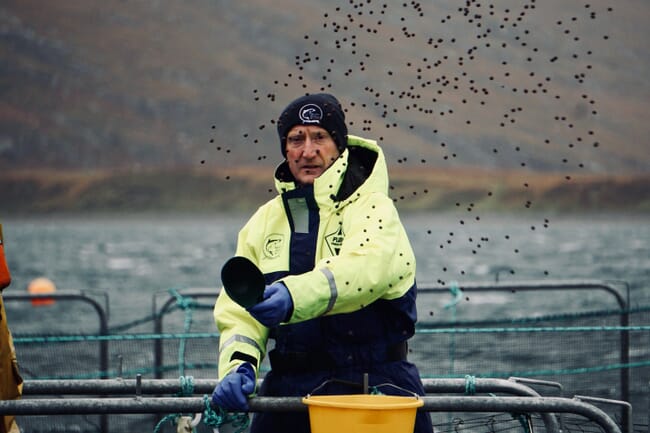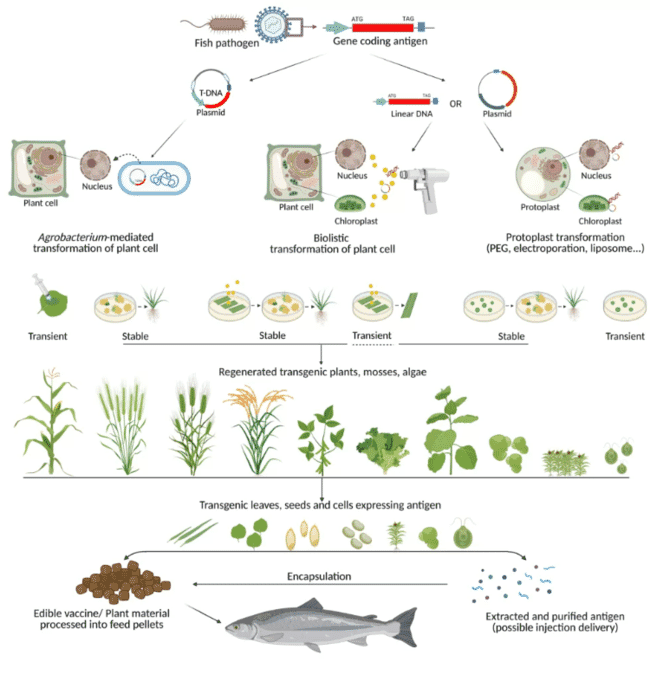
© SSPO
A new article published in Reviews in Aquaculture and co-authored by scientists from CATRIN, the Faculty of Fisheries and Water Conservation at the University of South Bohemia in Vodňany and the Biological Centre of the CAS in České Budějovice is exploring the advances in oral vaccines for aquaculture.
“In this review, we describe advances in the available knowledge of the processes necessary for the development of veterinary vaccines and point readers’ attention to the untapped potential of plant production systems,” says Ivo Frébort, one of the authors of the review article and the head of CATRIN-CRH.
“We propose that newly developed products not only meet the requirements for production, but also satisfy all the prerequisites for an oral vaccine and address all the bottlenecks within a single platform. In our view, so-called ‘molecular farming’ is an ideal tool for vaccine development, opening the way to sustainable aquaculture,” he continues.
In recent decades, aquaculture has become the fastest growing food production sector in the world. It currently produces more than 80 million tonnes of aquatic animals per year. But there are some problems associated with this type of farming, including the high susceptibility of farmed fish to disease.

© CATRIN
Although the estimated annual losses are approximately 10 percent of all aquatic animals, they amount to more than $10 billion per year globally and represent a major constraint to aquaculture worldwide.
Efforts to prevent large-scale losses and the spread of disease often resort to the use of pharmaceuticals and antibiotics, the application of which in aquatic environments is undesirable due to residues in farmed products and increased bacterial resistance. Producers therefore try to prevent fish diseases in the first place.
A very promising way is to circumvent this issue is to immunise fish through vaccines. Advances in microbiology, immunology and molecular biology have enabled the development of vaccines containing specific immunogenic proteins – antigens that can be, among other methods, given to fish orally as one of their feed components. The use of plants is advantageous for the preparation of these so-called edible vaccines.
“We now have methods and techniques that allow us to modify different plant species to produce specific antigens. In this paper, we discuss why the use of plants for the production of oral vaccines is advantageous, and we also give an overview of the strategies that have already been used for this purpose,” said the first author of the paper, Alžbeta Mičúchová from CATRIN.
The review paper is one of the outcomes of the collaboration between the two academic institutions. The paper also builds on Alžbeta Mičúchová’s research as part of her PhD studies. “I am focusing on creating transgenic barley lines that will produce antigens from two viral pathogens that attack carp or salmon. Subsequently, colleagues at the University of South Bohemia will test the ability of these antigens to stimulate an immune response in live fish. Our cooperation will therefore continue,” she added Mičúchová.




